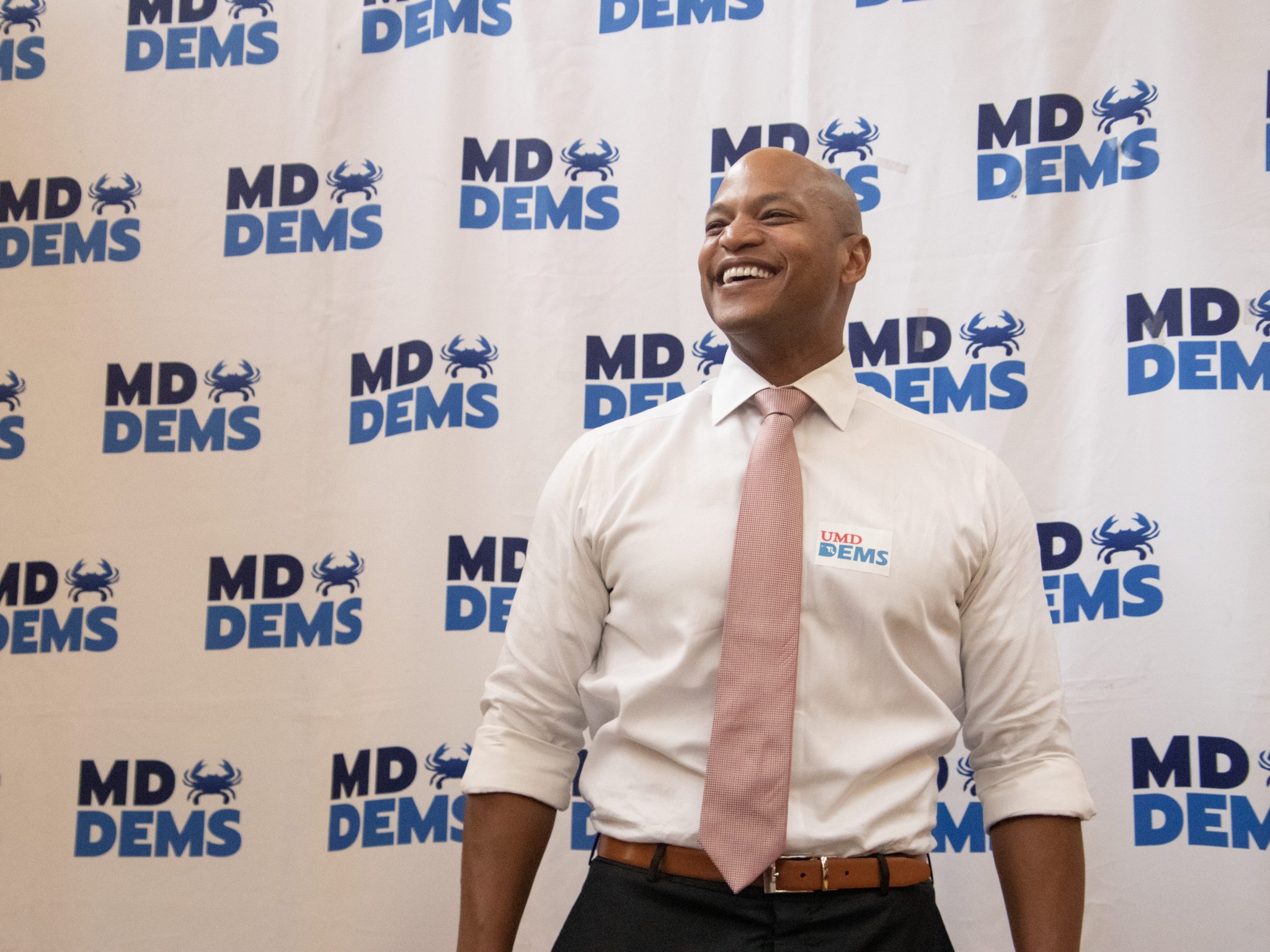Views expressed in opinion columns are the author’s own.
With the swearing in of Gov. Wes Moore, Maryland Democrats have unified government for the first time in eight years — and to keep it, they must take advantage of it. That would mean committing to progressive state legislation, including Moore’s proposal to index minimum wage to inflation.
On March 5, when former Gov. Larry Hogan announced he would not be running for the 2024 Republican presidential nomination, he made national headlines. Hogan was able to become a powerful player in his party by winning election twice in an overwhelmingly Democratic state. And he left office with high approval ratings among members of both parties.
If Democratic legislators want to continue to see an ally in Government House, the party has to avoid another Republican challenger from gaining as much popularity and influence as Hogan. Therefore, voters in the Democratic base need to see why unified government matters — and elected officials must capitalize upon it.
A higher minimum wage consistently receives broad public support, both at the state and federal level. That’s why Maryland’s Democratic legislators should get on board with tying increases to the state minimum wage to the level of inflation.
Democrats have a supermajority in the Maryland General Assembly with Moore in office and are positioned to take action on essentially any issue they can agree upon. Raising the state minimum wage with inflation levels, however, is one of the first instances where several Democratic legislators have openly disagreed with Moore.
But the proposal, first of all, is just good policy. COVID-19 aggravated existing disparities in our state, which has already experienced staggering levels of income inequality. A stagnant minimum wage during inflation is equivalent to a pay-cut for many employees, including those considered essential and who have borne the brunt of frontline work.
Raising the minimum wage has become a cornerstone of Democratic campaigns. This legislation should pass supermajorities with ease. If lawmakers are going to eschew an opportunity to pass legislation that directly improves the quality of people’s lives, there really is no point in having supermajorities. And Democrats no longer have Hogan to point to when faced with vetoes and other roadblocks, as they have over the past several years.
After a few years into Moore’s administration, Maryland’s shortcomings, in the public eye, will fall squarely on the shoulders of the Democratic Party, which now controls all levers of power. Republican candidates for governor in 2024 and 2028 can easily seize on the everyday economic hardships Marylanders face: a classic, if not deceitful, GOP talking point.
Moreover, lawmakers have pointed to automatic increases relinquishing some of the legislature’s control over changes to the minimum wage as a sticking point. But preventing the legislature from having to approve every increment to the minimum wage is more of an asset than it is disenfranchising.
It prevents every proposed change from devolving into conservative politicians turning Marylanders’ livelihoods into punching bags for their campaigns. I suspect Republican candidates would decry every increase — if each is voted on separately — as fiscally irresponsible, regardless of its merits, following Hogan’s successful playbook.
However, criticizing a carefully studied proposal that increases the minimum wage based on a scientific calculation of inflation — and also takes effect on predetermined intervals — as fiscally irresponsible would be disingenuous. And Republican political outrage in response to Moore’s proposal, which is law in 18 other states plus Washington, D.C., — including GOP dominant ones — would be an indictment of members of their own party.
Allowing minimum wage increases to occur automatically helps put the well-being of Marylanders ahead of legislators’ desire to hold onto authority.
And to be clear, Moore’s proposal also wouldn’t disempower the legislature to have meaningful influence over wages. The bill would allow the Board of Public Works to suspend automatic increases if and when deemed necessary. The Maryland General Assembly directly appoints one of three members of this board.
Irrational fears of unintended consequences, which can always be addressed in future legislation, are far outweighed by the tremendous good brought by the legislation. Raising the minimum wage with inflation is one more step toward fulfilling Moore’s goal to take on poverty in Maryland, which may be even more difficult than he anticipated.
It’s not clear exactly how Hogan grew to command such profound influence over politics in our state, but I know he convinced Marylanders that his ideas were common sense solutions, despite often being the opposite. So it surely wouldn’t hurt for Democrats to pull off some actual common sense solutions.
Moore’s proposal is daring. And he’s taken necessary steps to persuade legislators including personally testifying, something our previous governor intentionally forgoed. But he shouldn’t have to knock heads together to get this particular job done. Legislators should realize it’s in their best interest to have a partner in the governor — a proposal like this is how they keep one.
Dhruvak Mirani is a freshman computer science and government and politics major. Mirani can be reached at contact@dhruvak.com.



